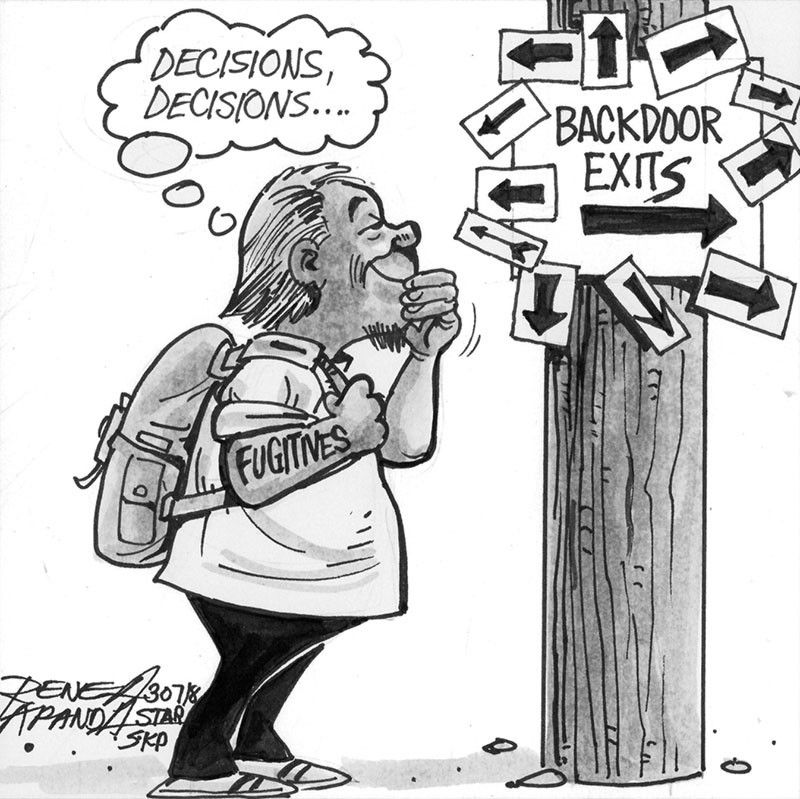EDITORIAL - A boon to fugitives

The guy reportedly took a fishing boat to Taiwan. Since he was a fugitive, it probably was no slow boat that he used for his getaway. Fortunately for Philippine law enforcement, the Taiwanese have an efficient system of monitoring overstaying and undesirable aliens.
So last Friday night, Ricardo “Ardot” Parojinog arrived in Manila after being deported from Taiwan and was immediately taken into police custody. Parojinog, a councilor of Ozamiz, is the elder brother of the city’s mayor Reynaldo Parojinog, who was slain together with his wife and a dozen others in a police drug raid in Ozamiz a year ago today.
The Philippine National Police is still trying to find out how Ricardo Parojinog managed to flee reportedly a month after the drug raid in Ozamiz. Parojinog is not the first fugitive to flee to another country, with a boat believed to be the mode of transportation. While Philippine airports are closely monitored, the country’s coastlines are porous.
With over 7,100 islands, the country has one of the world’s most extensive coastlines, with weak capability to conduct patrols. Several local government executives on the government’s narco list are suspected of bringing in drugs through the high seas and then transporting them to shore in smaller boats. Everything can be brought in: drugs, guns, gasoline, even motorcycles. Anything can be brought out, including mineral-rich black sand and the whiter variety used to create artificial islands, as well as endangered species such as pangolins and marine turtles. And yes, the porous coasts are a boon to individuals fleeing from the law.
To make up for the lack of patrol vessels and personnel, the government can invest in surveillance technology for monitoring coastal areas. Such technology has become increasingly efficient and affordable. At the same time, law enforcers must make sure those who abetted Parojinog’s escape are caught and punished. Measures must then be implemented to prevent similar escapes.
- Latest
- Trending


























